Emerging Infectious Diseases
A novel infection occurring from the evolution or alteration of an existing pathogen or parasite, resulting in a change of host range, vector, pathogenicity, or strain; or the appearance of a previously unrecognised infection or disease is classified as an emerging disease. A re-emerging disease is one that has already been identified but has changed its geographical setting, expanded its host range, or increased its prevalence dramatically. Pathogenic infectious diseases, such as acquired immunodeficiency syndrome, multidrug-resistant tuberculosis, and tick-borne infections, have emerged in the last two decades, posing a significant global threat to human health. A variety of underlying causal elements are linked to the emergence of anything new. Interactions with zoonotic pathogens in a host-parasite continuum involving wildlife, domestic animals, and humans are among them. Animals play an important role in the spread of zoonotic diseases. According to the CDC, animals are responsible for 75 percent of new or emerging diseases, and animals are also responsible for more than 60 percent of recognized infectious diseases in humans, such as the rabies virus, ringworm, and salmonella. This emphasizes the need for veterinary involvement in the fight against zoonotic infections.
- Zoonotic Disease
- Infectious Disease
- Re-Emerging Diseases
- Pandemic

Marco Polettini
DVM, Italy
Andreia Freitas
INIAV/REQUIMTE, Portugal
Andreia Freitas
INIAV/REQUIMTE, Portugal
Kedibone Gloria Kgosana
Sefako Makgatho Health Sciences University, South Africa
Nnenna Ugwu
Anglia Ruskin University, United Kingdom
Rubens Dias de Melo Junior
Universidade Federal de Goiás, BrazilSubmit your abstract Today
Important Alert:
X


Title : Analyzing veterinary medicine residues in food: A comprehensive guide
Andreia Freitas, INIAV/REQUIMTE, Portugal
Title : Quantifying changes in facial expression following hot-iron disbudding under procaine hydrochloride and meloxicam treatment in Holstein dairy calves
Nnenna Ugwu, Anglia Ruskin University, United Kingdom
Title : Trypanosoma vivax in and outside cattle blood: Parasitological, molecular, and serological detection, reservoir tissues, histopathological lesions, and vertical transmission evaluation
Rubens Dias de Melo Junior, Universidade Federal de Goiás, Brazil
Title : Characterization of porcine rotaviruses in the Czech Republic
Romana Moutelikova, Veterinary Research Institute, Czech Republic
Title : Determination of Circulating Foot-and-Mouth Disease Virus Serotypes in Kenya (2023)
Hellen Mutua, Foot and Mouth Disease National Reference Laboratories, Kenya
Title : Welfare for Amazonian wild animals
Eliane Cardoso Carvalho Moraes, Jungle Warfare Training Center/ Army, Brazil